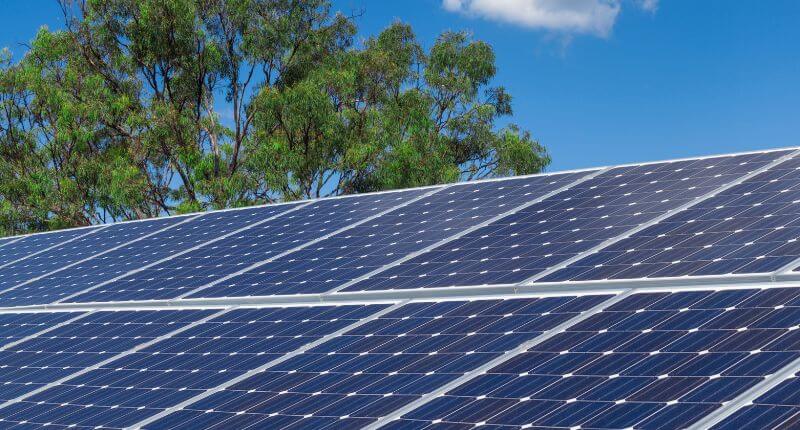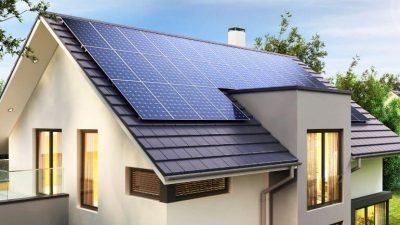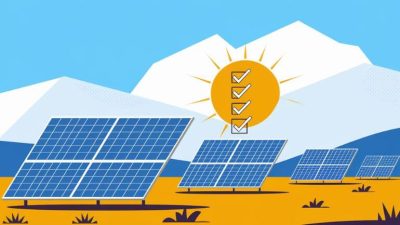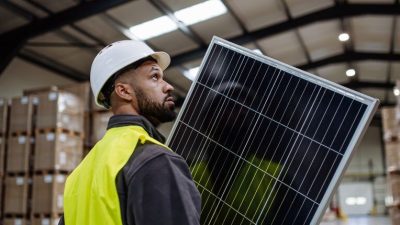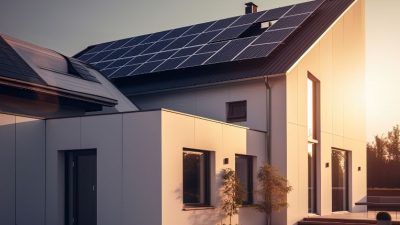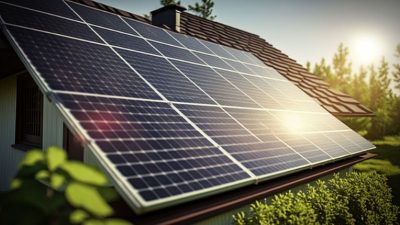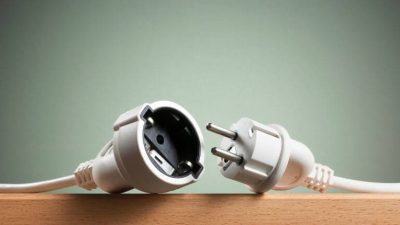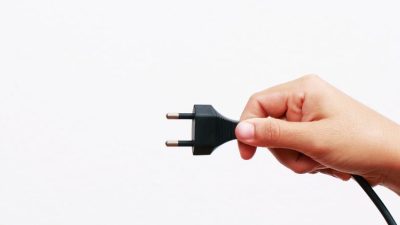In this article, we will explore in detail what the CAU is, what it is for, how it is obtained and the advantages it offers to those who choose to generate their own energy.
What is the Self-consumption Code?
The Self-consumption Code (CAU) is a unique identifier assigned to each self-consumption installation connected to the electricity grid in Spain. This code is essential to ensure that the installations comply with current regulations and that the electricity distributor can properly manage the energy produced and consumed by the user.
The CAU has a key function within the self-consumption system: it allows distributors to control and register the installations that are connected to the electricity grid, facilitating the compensation of surpluses and ensuring that the entire process complies with energy laws. In other words, it is a bridge that guarantees the legal and technical integration of self-consumption installations into the general electricity system.
Unlike other codes used in the energy industry, the CAU focuses exclusively on self-consumption installations, and its correct management is crucial for both private users and companies that are committed to renewable energies.
What is the Self-consumption Code for?
The Self-consumption Code (CAU) is an essential element for the correct management of a photovoltaic self-consumption installation. Its main function is to uniquely identify the installation to the electricity distributor, allowing the latter to record and monitor energy production and consumption.
The following are the main functions and benefits of the CAU:
- Control of the energy generated: Allows the electricity distributor to keep a clear record of the energy produced by the installation and how it interacts with the grid, whether in self-consumption installations with or without surpluses.
- Compensation of surpluses: In the case of installations that generate more energy than they consume, the CAU facilitates that surpluses are compensated, i.e. the surplus energy is injected into the grid and the user receives a remuneration or discount on their electricity bill.
- Regulatory compliance: With the CAU, the installation is legally registered, complying with the requirements established by Spanish self-consumption regulations. This code is an essential step to ensure that the installation is fully regularised with the distribution company.
- Monitoring and maintenance: By being identified with a CAU, it is easier to carry out continuous monitoring of the installation, whether to detect possible faults, manage production or carry out maintenance operations.
How do I obtain the Self-Supply Code?
The process to obtain the Self-Consumption Code (CAU) varies slightly depending on the type of installation (whether it has a surplus or not), but in general terms, it follows the following steps:
- Application to the electricity distribution company: The first step is to contact the energy distribution company operating in the area where the installation is located. This can be done directly by the owner or through the installation company. It is important to submit the necessary documentation, which will include technical details about the installation, such as the engineering project, specifications of the solar panels, inverters and other components.
- Validation of the documentation: The distributor will review the application and the technical documentation submitted to ensure that everything is in order and complies with the requirements established by the self-consumption regulations. This review may take some time depending on the distributor’s workload.
- Assignment of the CAU: Once the application has been approved, the distributor will assign the Self-consumption Code to the installation. This code will uniquely identify the installation and allow it to be officially registered.
- Grid connection: Once the CAU has been obtained, the installation is legally connected to the grid. At this point, if the installation is a self-consumption installation with surpluses, the surplus energy will begin to be injected into the grid and the owner will be able to benefit from the corresponding economic compensation.
Who can apply for the Self-consumption Code?
The Self-consumption Code (CAU) can be applied for by both individuals and companies that have installed a photovoltaic self-consumption system. Depending on the case, the application process can be managed directly by the owner of the installation or through a third party, such as the installation company or the energy trader.
- Individuals: Owners of single-family homes who decide to install solar panels for self-consumption can apply for the CAU directly with their electricity distribution company. Although it is common for this process to be managed by the installation company, it is important that the individual is aware of all the procedures and documentation necessary to obtain the CAU.
- Companies: Companies that opt for self-consumption systems, both to reduce their energy costs and to align with sustainability policies, must also apply for the CAU. This code allows them to operate within the legal framework and, in the case of installations with surpluses, to benefit from compensation for energy not consumed.
- Delegated management: In many cases, the management of the CAU can be delegated to the installation company or to an energy trading company. This is particularly useful for those who do not wish to deal with the administrative formalities. However, it is important that the owners verify that the whole process has been carried out correctly and that the installation is legally registered with their CAU.
- Self-consumption with or without surpluses: Both for installations that allow the injection of surpluses into the grid and for those that do not, the CAU is necessary. However, its management is especially relevant in the case of self-consumption with surpluses, where it is essential for the owner to receive financial compensation for the surplus energy.
Advantages and benefits of the Self-Consumption Code
Obtaining the Self-consumption Code (SCC) is not only a legal requirement, but also brings with it a number of important benefits for both individuals and businesses. Some of the most relevant ones are highlighted below:
- Legalisation of installations: The CAU is essential to regularise a self-consumption installation and connect it to the electricity grid. This step ensures that the installation complies with all technical and regulatory requirements, which protects the owner from possible penalties or legal problems.
- Access to surplus compensation: One of the main advantages of the CAU is that it allows owners of surplus installations to benefit financially. The energy generated that is not consumed can be fed back into the grid, and the owner will receive financial compensation, usually in the form of a reduction in the electricity bill.
- Increased control and monitoring: Having an assigned CAU allows electricity distributors to accurately monitor the energy production of the installation. This not only facilitates control, but also ensures correct billing and management of surpluses.
- Contribution to sustainability: The CAU encourages the growth of self-consumption installations, which in turn helps to reduce dependence on fossil fuels and promote the use of clean energy. By being identified within the electricity system, distributors can better manage the balance between consumption and generation of renewable energy.
- Ease of maintenance: By being legally identified and registered, any incident or maintenance required on the installation will be easier to manage. Technicians will have access to all the necessary information about the installation, which will reduce response times and facilitate operations.
Below, we present a comparative table between the Self-consumption Code (CAU) and the Light Installation Code (CIL). Each one fulfils specific functions within the electricity system in Spain, so it is important to know their differences and how they are used:
| Self-consumption code (CAU) | Light Installation Code (LIC) | |
| Definition | Unique code that identifies a solar self-consumption installation, necessary for grid connection and surplus compensation. | Code used to settle energy surpluses when there is no contract with a retailer. |
| Main use | For self-consumption installations with surplus compensation through a contract with the electricity supplier. | It is used when surplus energy is settled directly on the market without a contract with the retailer. |
| Requirement | Necessary if you have signed a surplus compensation contract with your supplier. | Necessary if you do not have a contract with the supplier and you want to liquidate your surplus on the electricity market. |
| Distributor | The electricity distributor provides this code for self-consumption installations. | Also provided by the distributor when energy needs to be settled without a balancing contract. |
| Surplus compensation | It allows you to receive financial compensation for the surplus energy you feed into the grid under a contract. | It allows surplus energy to be settled on the market without the need for a contract with a retailer. |
| Application | Solar self-consumption installations with surpluses managed by the retailer. | Installations with surpluses that are sold directly to the market, without intermediation by the marketer. |
Frequently Asked Questions on the Self-consumption Code
1. Is it compulsory to have the CAU for a self-consumption installation?
Yes, the CAU is mandatory for all self-consumption installations connected to the electricity grid in Spain. Without this code, the installation cannot be legally registered or connected, which also prevents access to surplus compensation benefits.
2. Who should apply for the CAU?
The CAU can be requested by the owner of the installation or, more commonly, by the installation company that is in charge of the technical and administrative process. In either case, it is important to ensure that it has been requested and allocated correctly.
3. What is the difference between the CAU and the CUPS?
The CAU is a specific code to identify photovoltaic self-consumption installations, while the CUPS is a unique code that identifies any energy supply point (electricity or gas) in Spain. Both are necessary, but have different functions: the CAU for managing solar energy production and the CUPS for energy supply in general.
4. Can I get compensation for surplus energy without a CAU?
No, in order to receive financial compensation for the surplus energy you feed into the grid, it is essential to have a CAU. This code ensures that the distributor can correctly record the energy you feed into the grid and calculate the appropriate compensation.
At SolarMente, we accompany you every step of the way so that your transition to self-consumption is quick, safe and profitable. We manage the entire process, from the installation of your solar panels to obtaining the Self-consumption Code (CAU), ensuring that you can enjoy clean energy and reduce your bills from day one.
If you’re ready to start generating your own electricity and making the most of renewable energy, don’t hesitate to contact us today.

